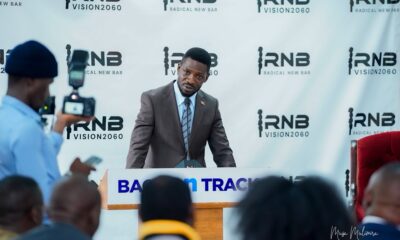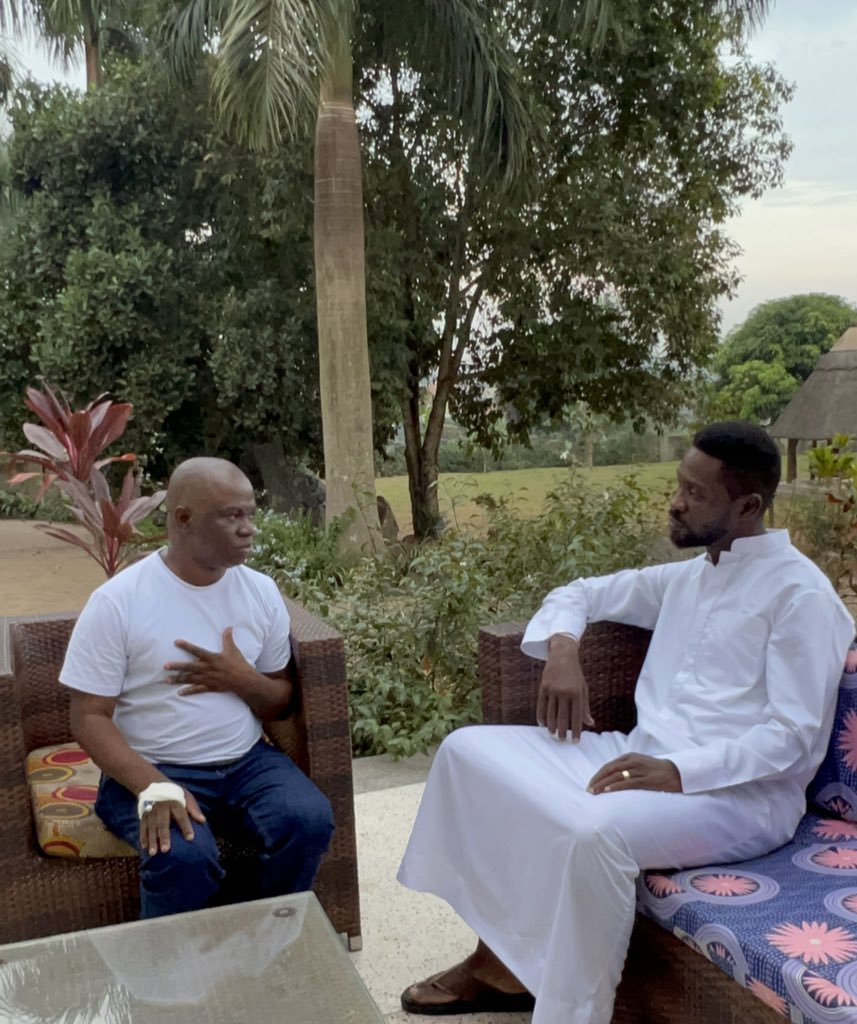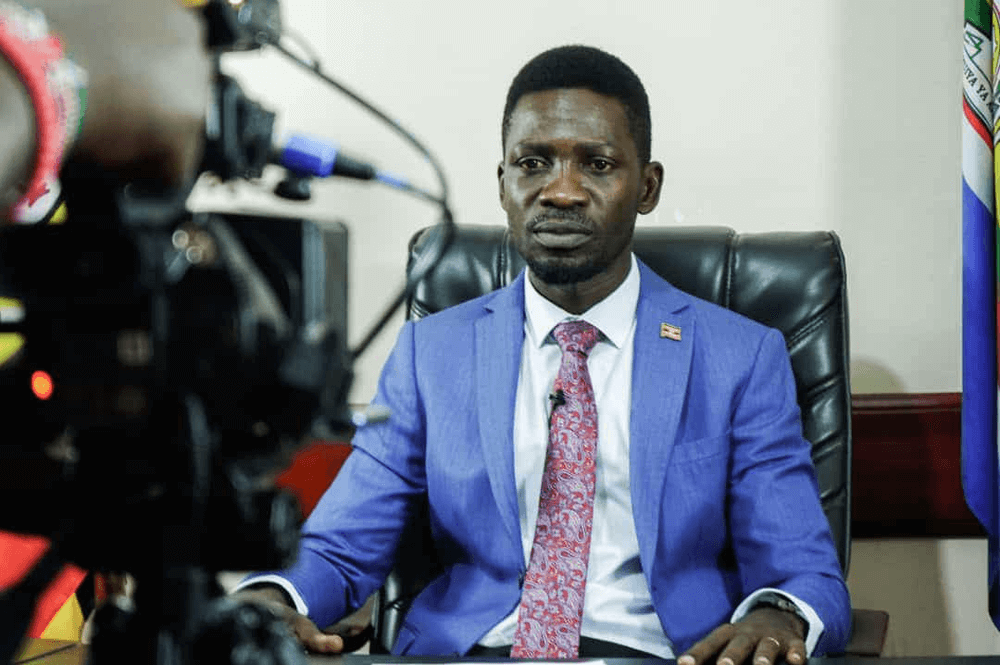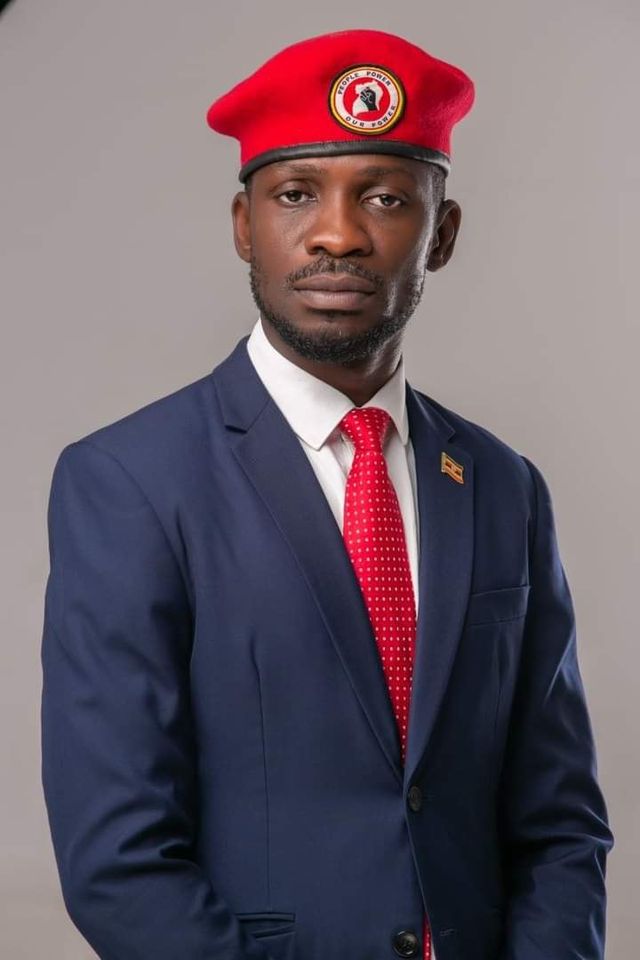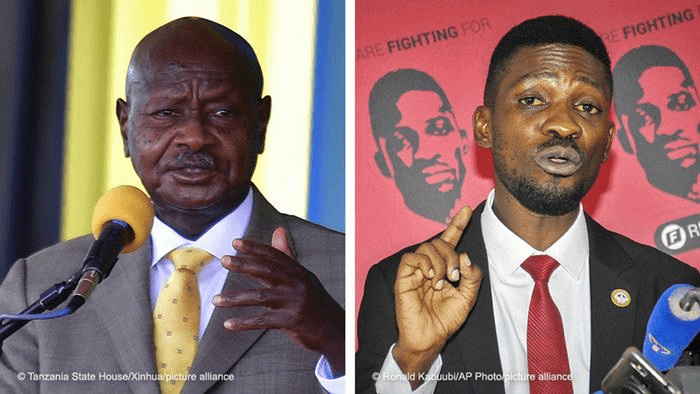

Exclusive
NEVER BOW DOWN TO A DICTATOR.
WHEN FACED WITH THE SEVERE PROBLEMS of confronting a dictatorship, some people may lapse back into passive submission. Others, seeing no prospect of achieving democracy, may conclude they must come to terms with the apparently permanent dictatorship, hoping that through “conciliation,” “compromise,” and “negotiations” they might be able to salvage some positive elements and to end the brutalities. On the surface, lacking realistic options, there is appeal in that line of thinking.
Serious struggle against brutal dictatorships is not a pleasant prospect. Why is it necessary to go that route? Can’t everyone just be reasonable and find ways to talk, to negotiate the way to a gradual end to the dictatorship? Can’t the democrats appeal to the dictators’ sense of common humanity and convince them to reduce their domination bit by bit, and perhaps finally to give way completely to the establishment of a democracy?

It is sometimes argued that the truth is not all on one side. Perhaps the democrats have misunderstood the dictators, who may have acted from good motives in difficult circumstances? Or perhaps, some may think, the dictators would gladly remove themselves from the difficult situation facing the country if only given some encouragement and enticements. It may be argued that the dictators could be offered a “win-win” solution, in which everyone gains something. The risks and pain of further struggle could be unnecessary, it may be
argued, if the democratic opposition is only willing to settle the conflict peacefully by negotiations (which may even perhaps be assisted by some skilled individuals or even another government). Would that not be preferable to a difficult struggle, even if it is one conducted by nonviolent struggle rather than by military war?
Merits and limitations of negotiations
Negotiations are a very useful tool in resolving certain types of issues in conflicts and should not be neglected or rejected when they are appropriate. In some situations where no fundamental issues are at stake, and therefore a compromise is acceptable, negotiations can be an important means to settle a conflict.
A labor strike for higher wages is a good example of the appropriate role of negotiations in a conflict: a negotiated settlement may provide an increase somewhere between the sums originally proposed by each of the contending sides. Labor conflicts with legal trade unions are, however, quite different than the conflicts in which the continued existence of a cruel dictatorship or the establishment of political freedom are at stake.
When the issues at stake are fundamental, affecting religious principles, issues of human freedom, or the whole future development of the society, negotiations do not provide a way of reaching a mutually satisfactory solution. On some basic issues there should be no compromise.
Only a shift in power relations in favor of the democrats can adequately safeguard the basic issues at stake. Such a shift will occur through struggle, not negotiations.
This is not to say that negotiations ought never to be used. The point here is that negotiations are not a realistic way to remove a strong dictatorship in the absence of a powerful democratic opposition.
Negotiations, of course, may not be an option at all. Firmly entrenched dictators who feel secure in their position may refuse to negotiate with their democratic opponents. Or, when negotiations have been initiated, the democratic negotiators may disappear and never be heard from again.
Negotiated surrender?
Individuals and groups who oppose dictatorship and favor negotiations will often
have good motives. Especially when a military struggle has continued for years
against a brutal dictatorship without final victory, it is understandable that all the
people of whatever political persuasion would want peace. Negotiations are
especially likely to become an issue among democrats where the dictators have
clear military superiority and the destruction and casualties among one’s own
people are no longer bearable. There will then be a strong temptation to explore
any other route that might salvage some of the democrats’ objectives while
bringing an end to the cycle of violence and counter-violence.
The offer by a dictatorship of “peace” through negotiations with the
democratic opposition is, of course, rather disingenuous. The violence could be
ended immediately by the dictators themselves, if only they would stop waging
war on their own people. They could at their own initiative without any
bargaining restore respect for human dignity and rights, free political prisoners,
end torture, halt military operations, withdraw from the government, and apologize to the people.
When the dictatorship is strong but an irritating resistance exists, the dictators
may wish to negotiate the opposition into surrender under the guise of making
“peace.” The call to negotiate can sound appealing, but grave dangers can be
lurking within the negotiating room.
On the other hand, when the opposition is exceptionally strong and the
dictatorship is genuinely threatened, the dictators may seek negotiations in order
to salvage as much of their control or wealth as possible. In neither case should
the democrats help the dictators achieve their goals.
Democrats should be wary of the traps that may be deliberately built into a
negotiation process by the dictators. The call for negotiations when basic issues
of political liberties are involved may be an effort by the dictators to induce the
democrats to surrender peacefully while the violence of the dictatorship
continues. In those types of conflicts the only proper role of negotiations may
occur at the end of a decisive struggle in which the power of the dictators has
been effectively destroyed and they seek personal safe passage to an
international airport.
Power and justice in negotiations
If this judgment sounds too harsh a commentary on negotiations, perhaps some
of the romanticism associated with them needs to be moderated. Clear thinking
is required as to how negotiations operate.
“Negotiation” does not mean that the two sides sit down together on a basis of
equality and talk through and resolve the differences that produced the conflict
between them. Two facts must be remembered. First, in negotiations it is not the
relative justice of the conflicting views and objectives that determines the
content of a negotiated agreement. Second, the content of a negotiated
agreement is largely determined by the power capacity of each side.
Several difficult questions must be considered. What can each side do at a
later date to gain its objectives if the other side fails to come to an agreement at
the negotiating table? What can each side do after an agreement is reached if the
other side breaks its word and uses its available forces to seize its objectives
despite the agreement?
A settlement is not reached in negotiations through an assessment of the rights
and wrongs of the issues at stake. While those may be much discussed, the real
results in negotiations come from an assessment of the absolute and relative
power situations of the contending groups. What can the democrats do to ensure
that their minimum claims cannot be denied? What can the dictators do to stay in
control and neutralize the democrats? In other words, if an agreement comes, it
is more likely the result of each side estimating how the power capacities of the
two sides compare, and then calculating how an open struggle might end.
Attention must also be given to what each side is willing to give up in order to
reach agreement. In successful negotiations there is compromise, a splitting of
differences. Each side gets part of what it wants and gives up part of its
objectives.
In the case of extreme dictatorships what are the pro-democracy forces to give
up to the dictators? What objectives of the dictators are the pro-democracy
forces to accept? Are the democrats to give to the dictators (whether a political
party or a military cabal) a constitutionally established permanent role in the
future government? Where is the democracy in that?
Even assuming that all goes well in negotiations, it is necessary to ask: What
kind of peace will be the result? Will life then be better or worse than it would be
if the democrats began or continued to struggle?
“Agreeable” dictators
Dictators may have a variety of motives and objectives underlying their
domination: power, position, wealth, reshaping the society, and the like. One
should remember that none of these will be served if they abandon their control
positions. In the event of negotiations dictators will try to preserve their goals.
Whatever promises offered by dictators in any negotiated settlement, no one
should ever forget that the dictators may promise anything to secure submission
from their democratic opponents, and then brazenly violate those same
agreements.
If the democrats agree to halt resistance in order to gain a reprieve from
repression, they may be very disappointed. A halt to resistance rarely brings
reduced repression. Once the restraining force of internal and international
opposition has been removed, dictators may even make their oppression and
violence more brutal than before. The collapse of popular resistance often
removes the countervailing force that has limited the control and brutality of the
dictatorship. The tyrants can then move ahead against whomever they wish. “For
the tyrant has the power to inflict only that which we lack the strength to resist,”
wrote Krishnalal Shridharani
Resistance, not negotiations, is essential for change in conflicts where
fundamental issues are at stake. In nearly all cases, resistance must continue to
drive dictators out of power. Success is most often determined not by negotiating
a settlement but through the wise use of the most appropriate and powerful
means of resistance available. It is our contention, to be explored later in more
detail, that political defiance, or nonviolent struggle, is the most powerful means
available to those struggling for freedom.
What kind of peace?
If dictators and democrats are to talk about peace at all, extremely clear thinking
is needed because of the dangers involved. Not everyone who uses the word
“peace” wants peace with freedom and justice. Submission to cruel oppression
and passive acquiescence to ruthless dictators who have perpetrated atrocities on
hundreds of thousands of people is no real peace. Hitler often called for peace,
by which he meant submission to his will. A dictators’ peace is often no more
than the peace of the prison or of the grave.
There are other dangers. Well-intended negotiators sometimes confuse the
objectives of the negotiations and the negotiation process itself. Further,
democratic negotiators, or foreign negotiation specialists accepted to assist in the
negotiations, may in a single stroke provide the dictators with the domestic and
international legitimacy that they had been previously denied because of their
seizure of the state, human rights violations, and brutalities. Without that
desperately needed legitimacy, the dictators cannot continue to rule indefinitely.
Exponents of peace should not provide them legitimacy.
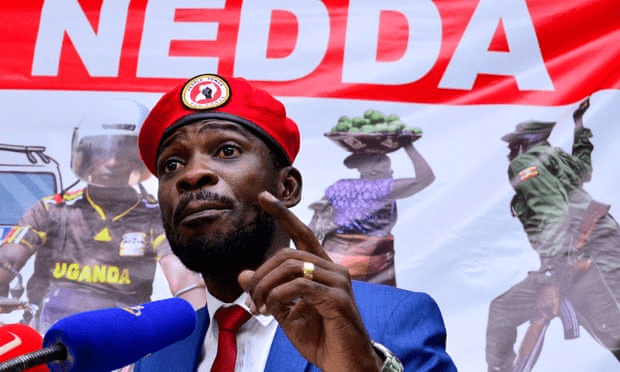
Reasons for hope
As stated earlier, opposition leaders may feel forced to pursue negotiations out of
a sense of hopelessness of the democratic struggle. However, that sense of
powerlessness can be changed. Dictatorships are not permanent. People living
under dictatorships need not remain weak, and dictators need not be allowed to
remain powerful indefinitely. Aristotle noted long ago, “… [O]ligarchy and
tyranny are shorter-lived than any other constitution… [A]ll round, tyrannies
have not lasted long.”Modern dictatorships are also vulnerable. Their weaknesses can be aggravated and the dictators’ power can be disintegrated.
Recent history shows the vulnerability of dictatorships, and reveals that they
can crumble in a relatively short time span: whereas ten years – 1980–1990 –
were required to bring down the Communist dictatorship in Poland, in East
Germany and Czechoslovakia in 1989 it occurred within weeks. In El Salvador
and Guatemala in 1944 the struggles against the entrenched brutal military
dictators required approximately two weeks each. The militarily powerful
regime of the Shah in Iran was undermined in a few months. The Marcos
dictatorship in the Philippines fell before people power within weeks in 1986:
the United States government quickly abandoned President Marcos when the
strength of the opposition became apparent. The attempted hard-line coup in the
Soviet Union in August 1991 was blocked in days by political defiance.
Thereafter, many of its long dominated constituent nations in only days, weeks,
and months regained their independence.
The old preconception that violent means always work quickly and nonviolent means always require vast time is clearly not valid. Although much time may be required for changes in the underlying situation and society, the actual fight against a dictatorship sometimes occurs relatively quickly by nonviolent struggle.
Negotiations are not the only alternative to a continuing war of annihilation on the one hand and capitulation on the other. The examples just cited, illustrate that another option exists for those who want both peace and freedom: political defiance.
An extract from From dictatorship to Democracy.
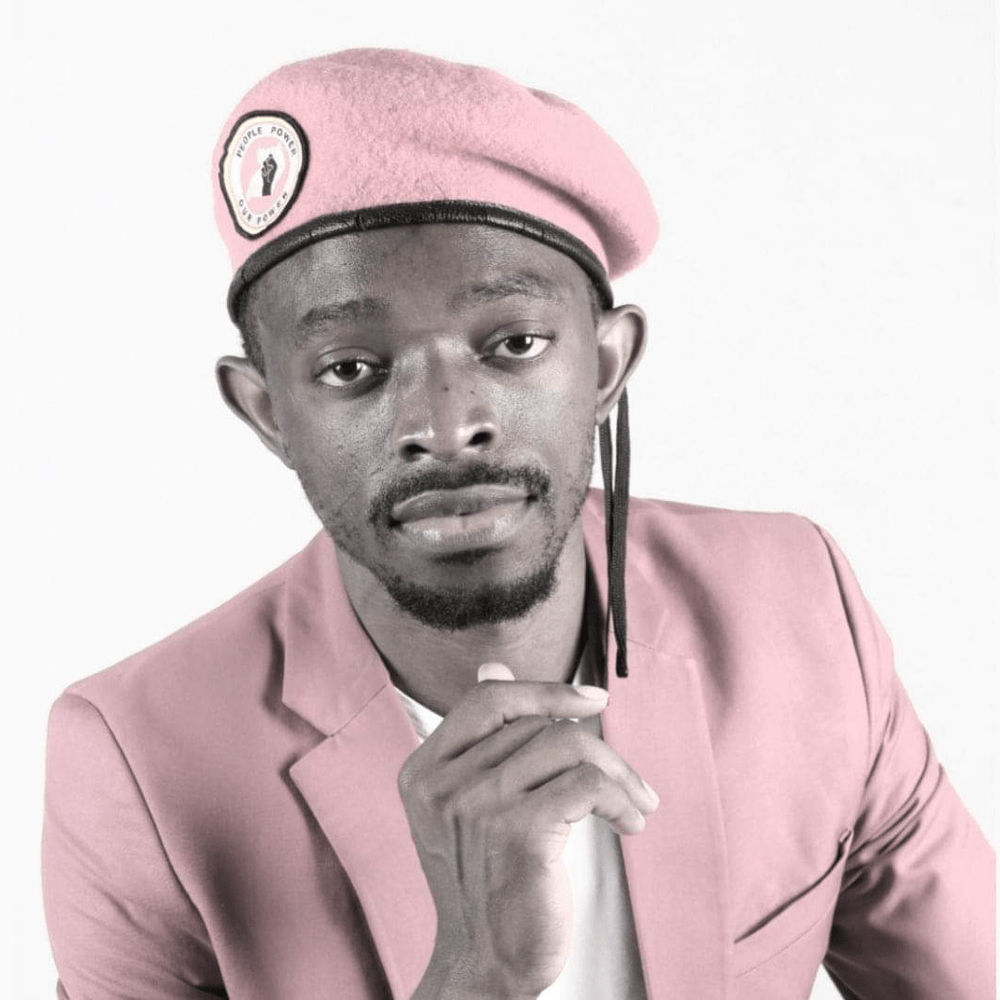
Exclusive
NUP Manifesto 2026-2031
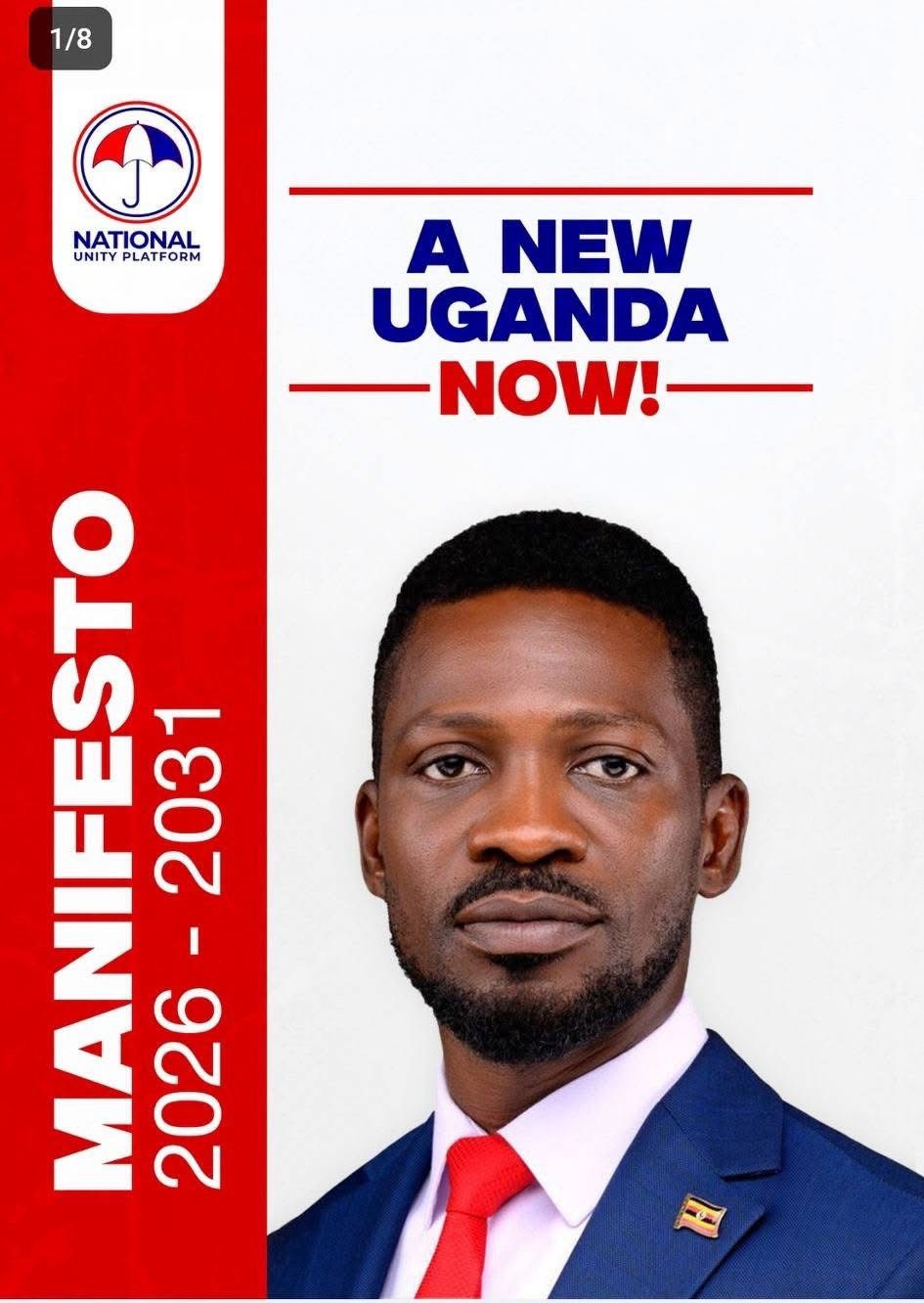
Fellow citizens, very honored to present to you the National Unity Platform Manifesto, 2026 – 2031, which we launched in Jinja District today. This is a manifesto born out of extensive consultation with our people. Extremely grateful to our Research and Policy teams for the great work done with so much dedication.
These are not mere promises- this is a covenant we are making with the people of Uganda to give our nation a fresh start. A NEW UGANDA NOW
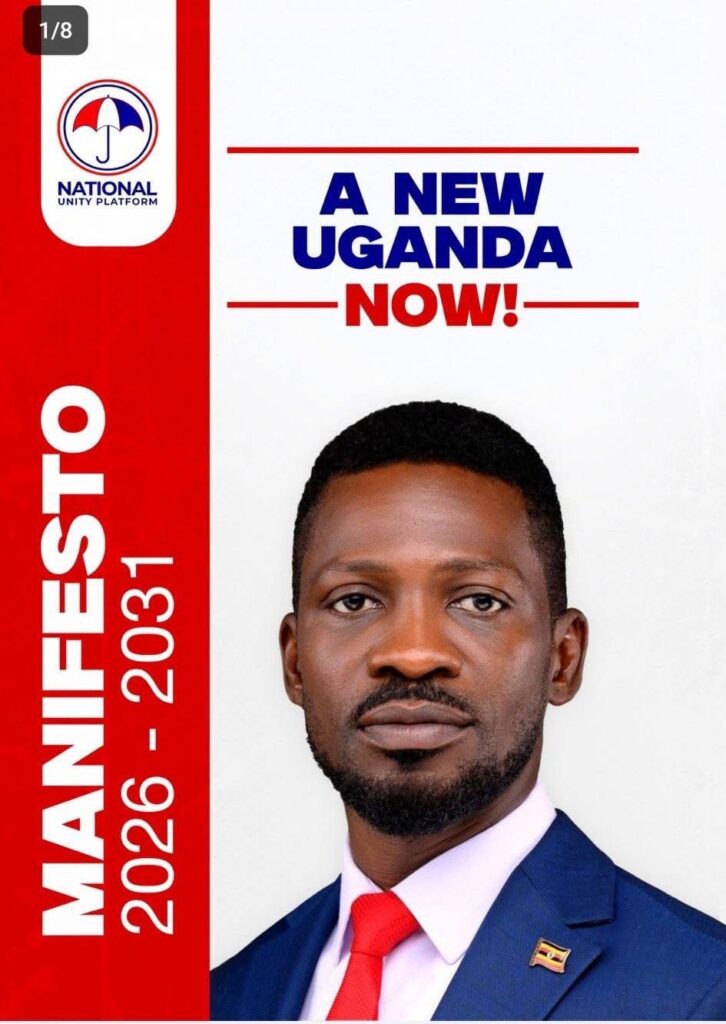
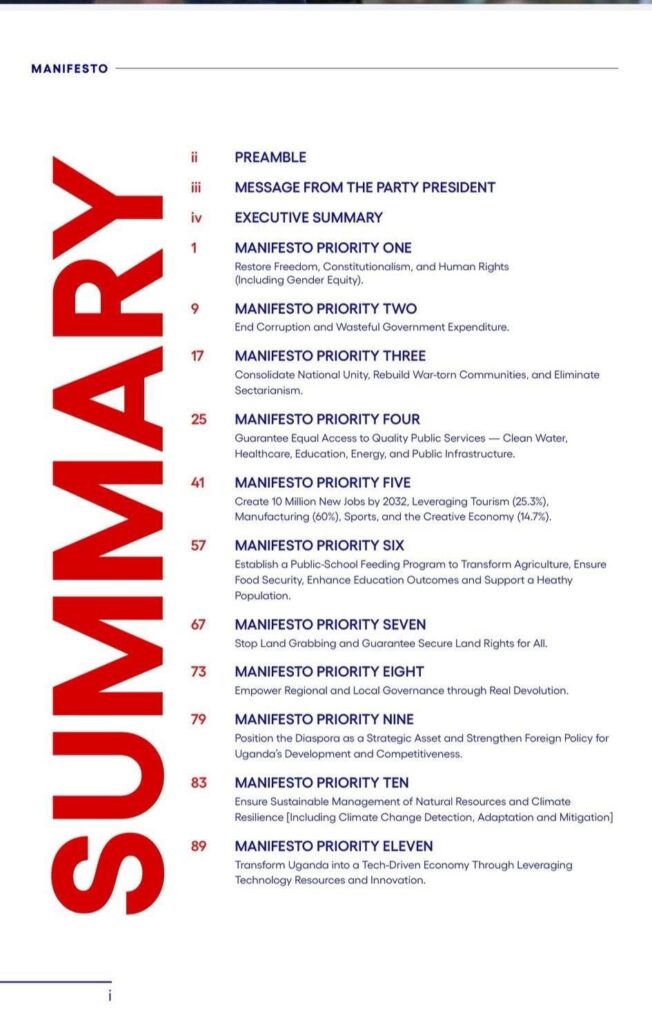
Exclusive
BBC Blocks Ugandan Activist and deletes his long post critiquing Museveni’s 40-Year Dictatorship
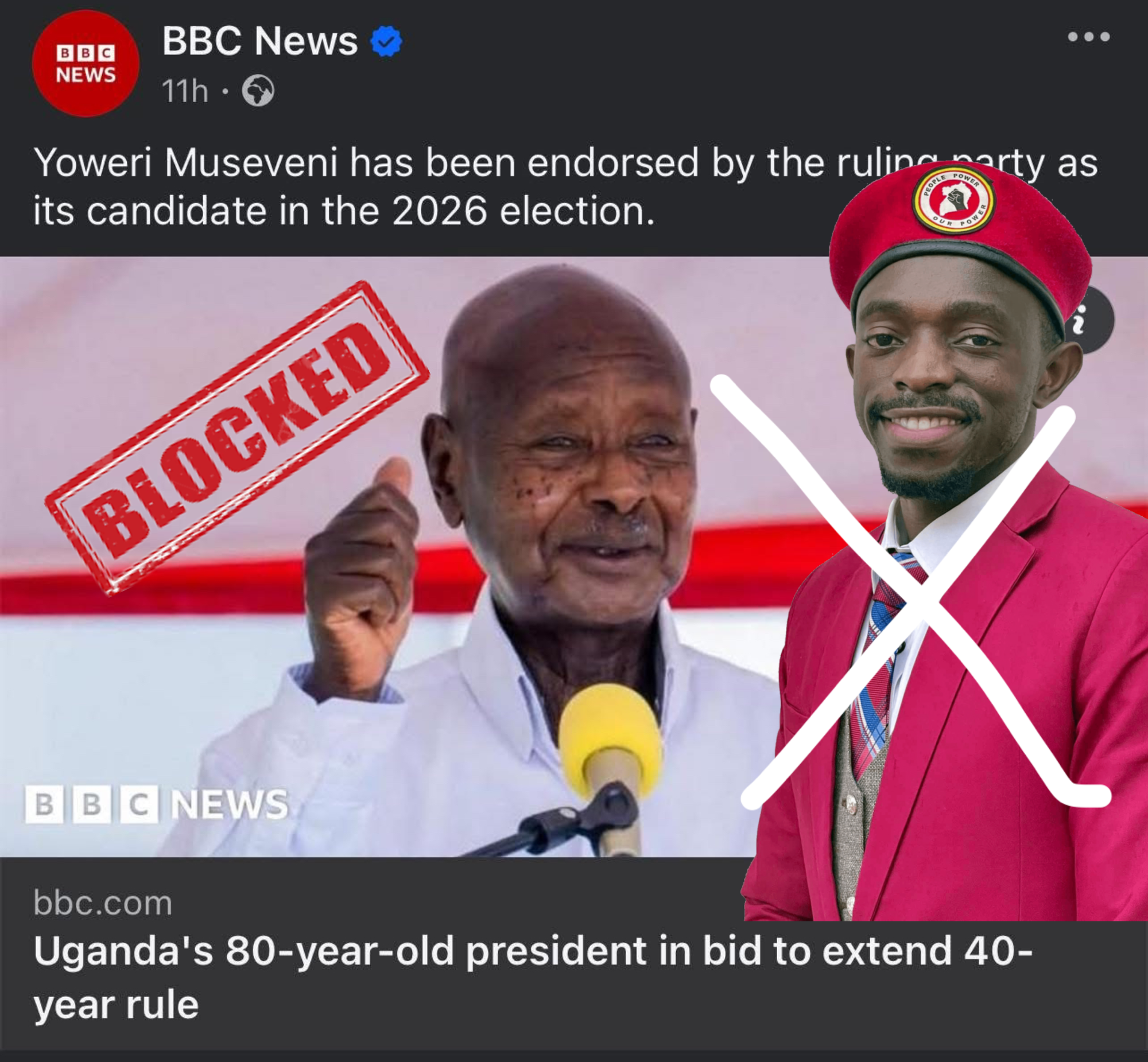
On July 7th, 2025, BBC News published a headline that read:
“Yoweri Museveni has been endorsed by the ruling party as its candidate in the 2026 election.”
Accompanied by a smiling image of Uganda’s 80-year-old ruler, the caption framed this moment as just another routine political development. But to millions of Ugandans especially the youth, this was not news. It was a slap in the face. It was a continuation of a 40-year nightmare disguised as democracy.
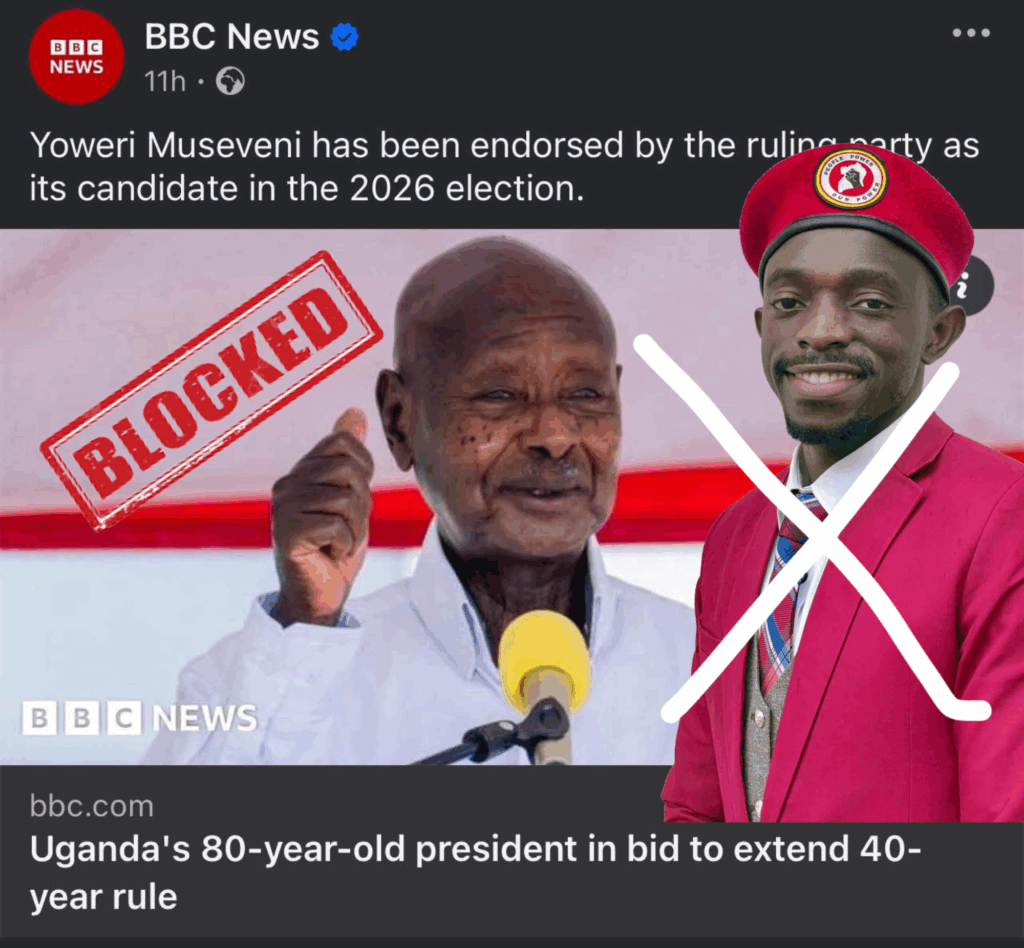
I commented under that post calmly but firmly exposing Museveni’s long record of repression, corruption, and illegitimacy. Within hours, my comment had been deleted. By the next morning, BBC News had blocked my account from interacting with their page. I had to access their page using a different account with my comment deleted.
No warning. No explanation. No appeal.
A British publicly-funded media house silenced a Ugandan citizen for exposing decades of abuse, in the comments section of their own post. Whom do they serve, what are they protecting??
What Did I Say That Deserved to Be Erased?
Here’s the truth that BBC did not want to remain under their post,
For nearly four decades, Yoweri Museveni has not ruled Uganda through democratic consent but through violence, constitutional manipulation, and military force. Since 1986, he has held onto power through rigged elections, brutal crackdowns, and legislative coups. He was not elected by the people in 1986, nor in 2001, 2006, 2011, 2016, or 2021.
In 2005, he bribed MPs to remove term limits a safeguard meant to prevent exactly this kind of life presidency. Then in 2017, when age threatened to disqualify him, he sent soldiers into Parliament to beat up lawmakers and remove the presidential age limit by force. These weren’t democratic reforms. They were constitutional rapes carried out at gunpoint.
Museveni didn’t come to power through the ballot. He came with bullets preaching against long-serving leaders only to become Africa’s longest-serving dictator.
Uganda Under Siege By Its Own Government
Uganda is not a democracy. It is a state under internal occupation. The police have become hunters. The army, a personal militia. Parliament, a circus of cowardice. Activists vanish into “torture houses.” Protesters are gunned down in the streets. In November 2020, more than 100 Ugandans were killed in cold blood simply for demanding the release of opposition leader Bobi Wine.
Today, youth unemployment is over 70%, hospitals are crumbling, and education is a luxury. Meanwhile, billions are siphoned through fake contracts, inflated military budgets, and ghost projects. Uganda’s national debt now exceeds 52% of GDP but the money doesn’t build; it maintains dictatorship.
Then the West’s Dirty Hands in Uganda’s Oppression
Museveni survives not on popular support, but on Western protection. Britain, the EU, and the United States continue to arm, finance, and legitimize his regime. To them, Museveni is a “stabilizer” in the Great Lakes region a useful gatekeeper in exchange for oil, gold, and mineral access. Their commitment to democracy ends at their borders.
Original Deleted comment
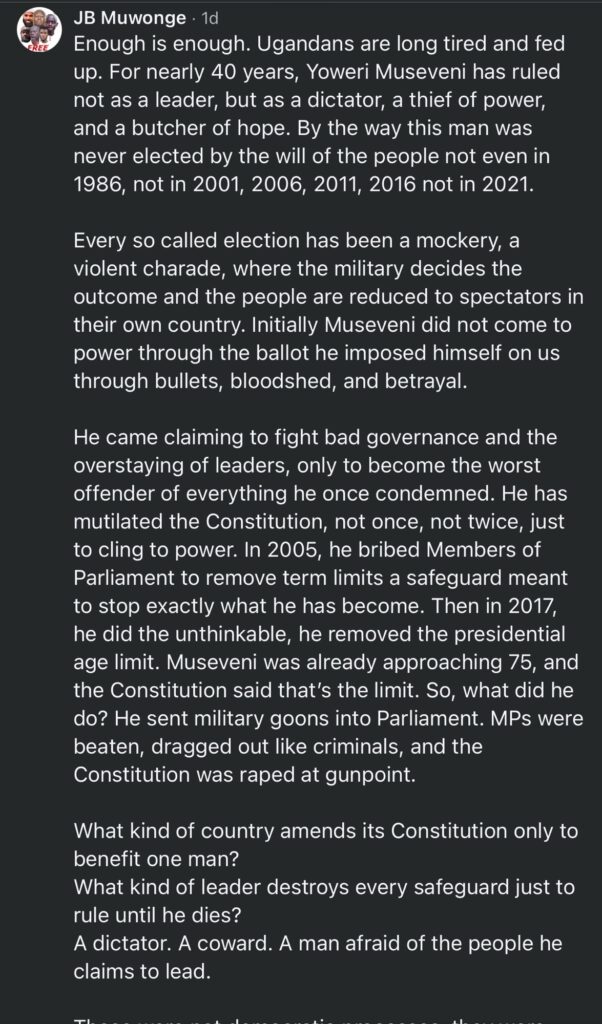
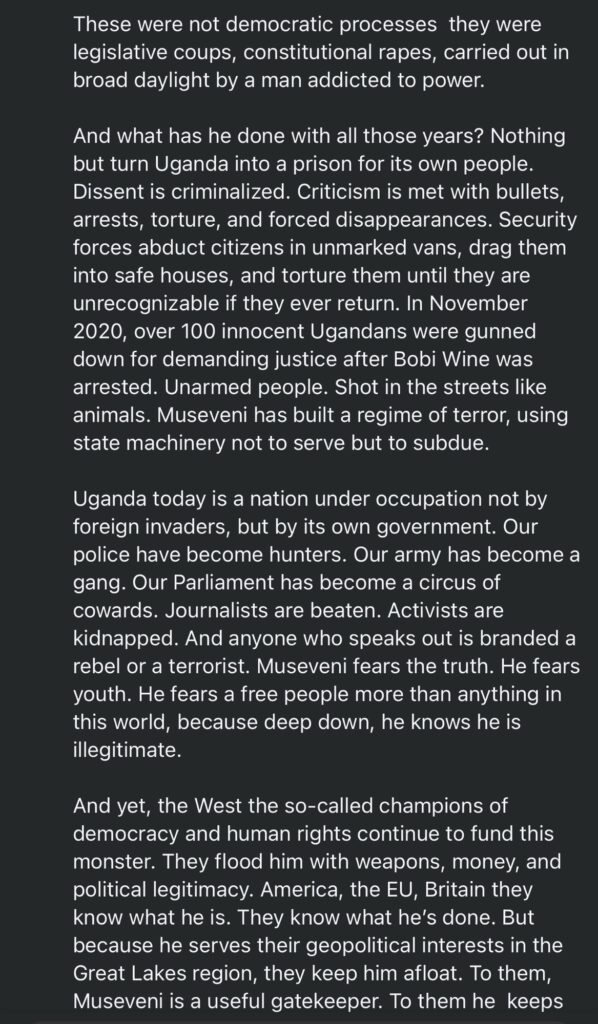
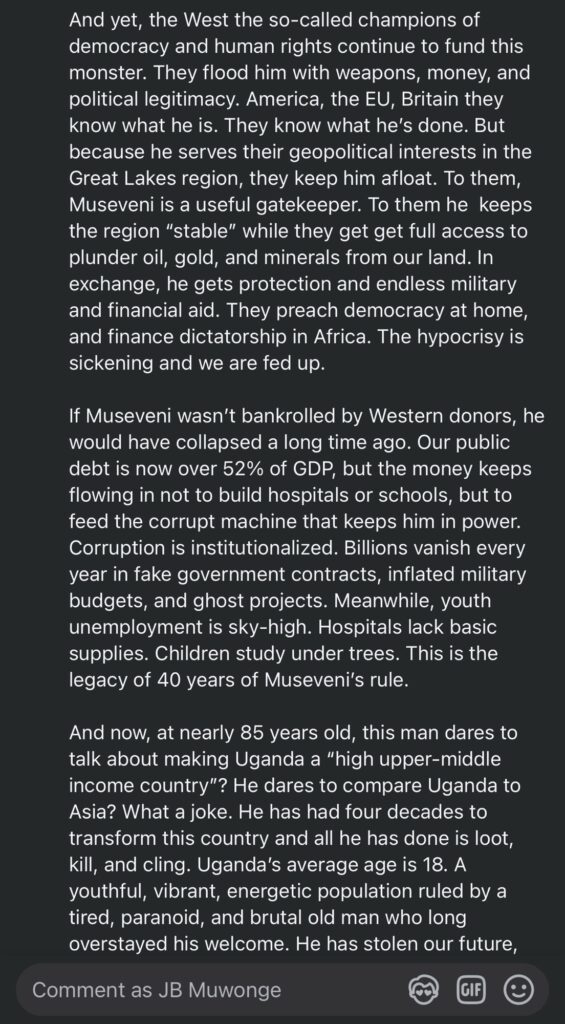
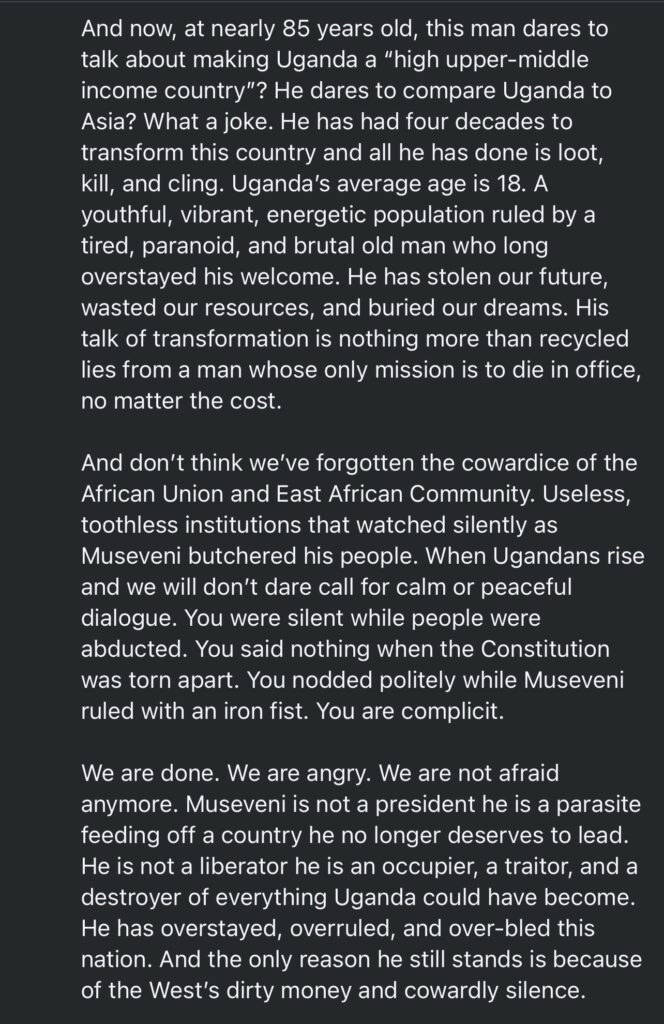
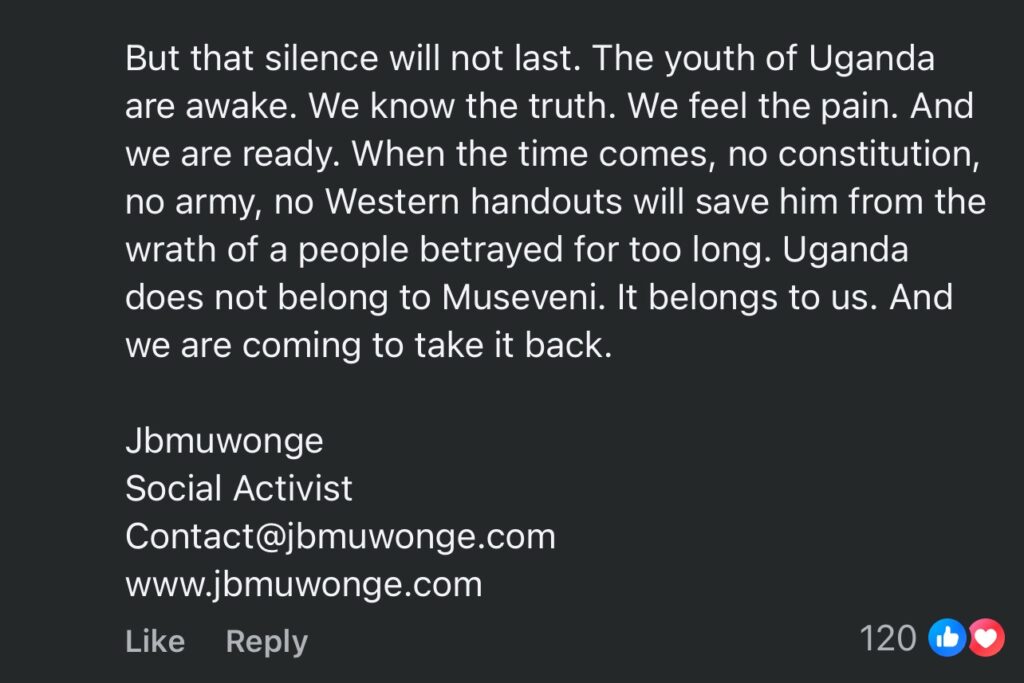
The same BBC that blocked me would never silence a Ukrainian, Palestinian, or Russian dissident for criticizing a regime. But they erased my voice a Black African fighting for justice in my own country. That is not journalism. That is complicity.
Why Was I Silenced for Speaking the Truth?
If my words were wrong, they could have been debated.
If my tone was aggressive, it could have been challenged.
But I was blocked and erased. That tells you everything.
Museveni fears the youth. He fears the truth. But now, so do his international enablers because the narrative is slipping.
Uganda’s young people are awake, informed, and angry. We are not afraid. Museveni is not a president he is a parasite, a relic clinging to power, feeding off a nation he has robbed for 40 years. He has overstayed, over-bled, and overruled Uganda. And we are ready to take it back.
To the BBC and the West You Can’t Silence Us All
If BBC wants to side with power instead of people, history will judge them. If they believe blocking one activist will stop the truth, they are mistaken. My voice echoes millions of others who are rising to say:
Enough is enough.
Uganda does not belong to Museveni.
It belongs to its people.
And we are coming for our future.
JB Muwonge
Social Activist | Human Rights Defender
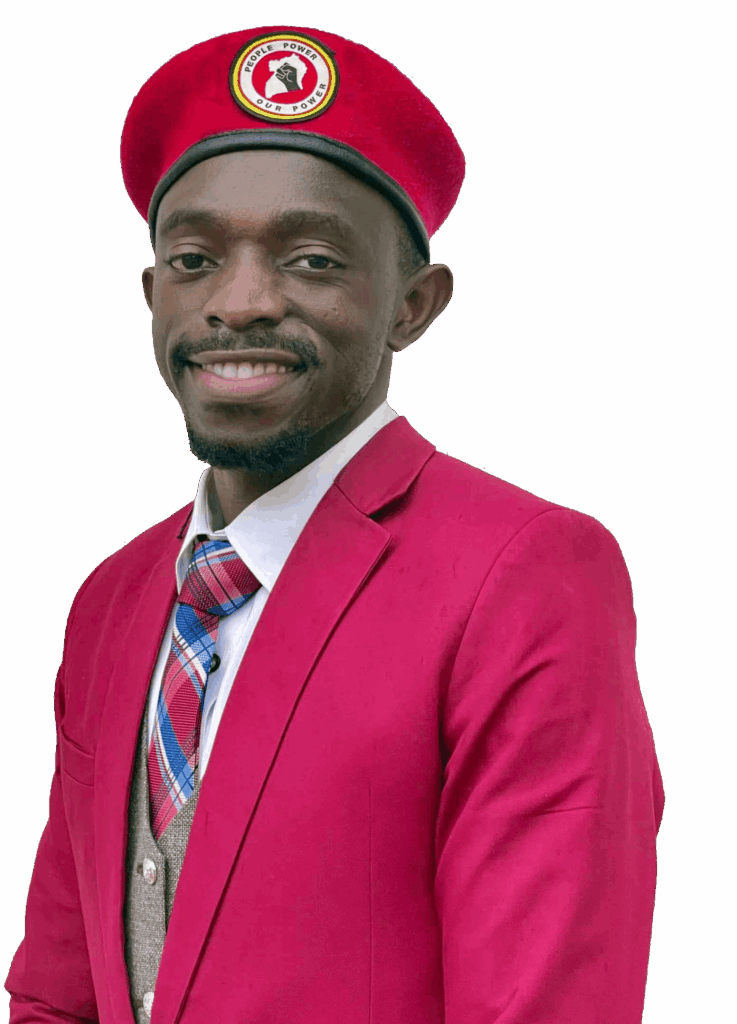
Exclusive
What Draws People to @HEBobi Wine? The Magnetic Charisma That Sets Him Apart Explained.
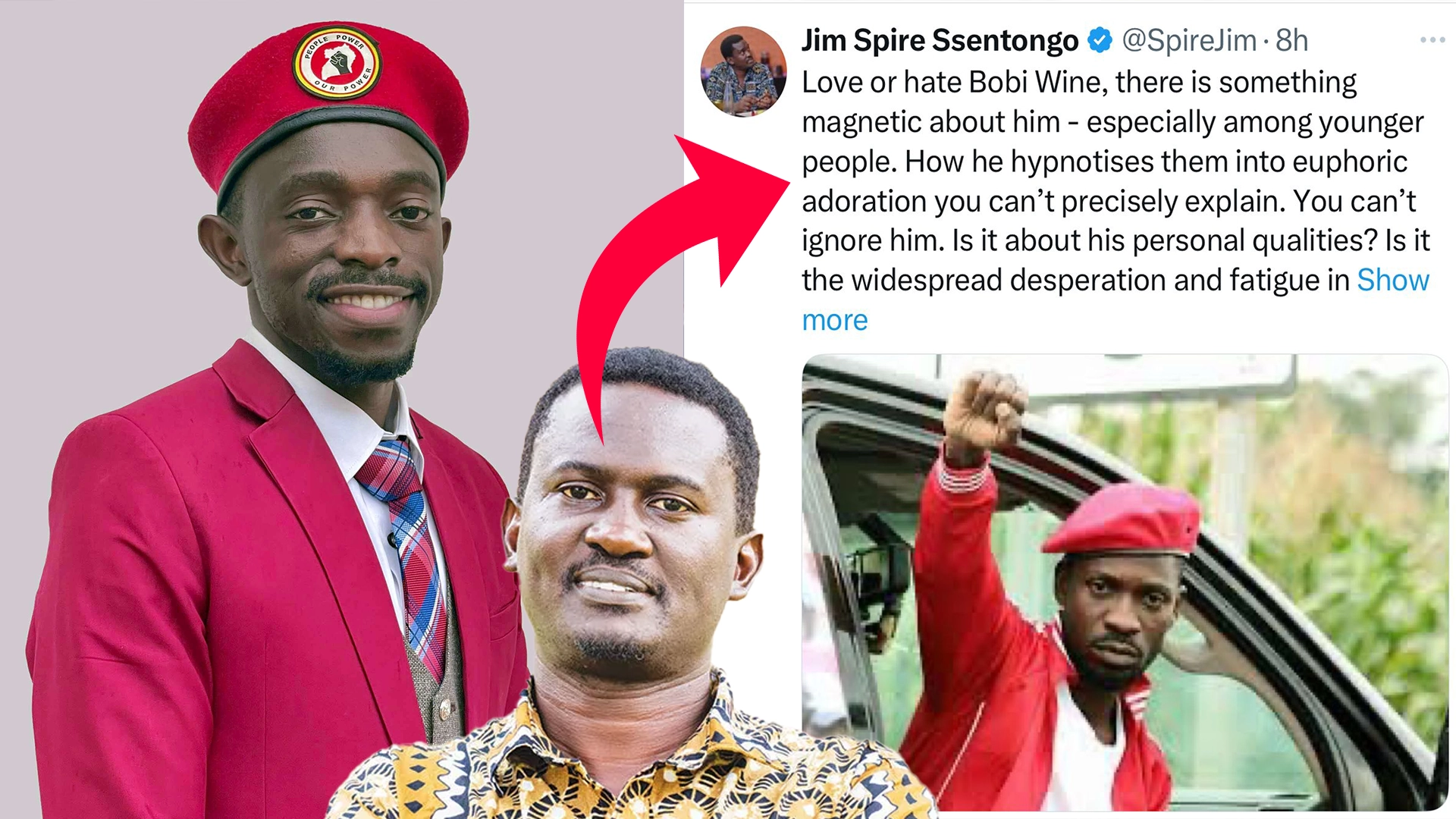
Jimmy Spire Ssentongo asked a powerful question, and I would love to give him answers, He said,
To answer this, I have to start with what happened recently at the NBS Talk show, Barometer. The entire country was in high gear, waiting for him to speak. The moment he stepped in the Studios, the atmosphere changed. The presenters couldn’t hide their smiles, felt that rare spark of hope, rushed to capture the moment, posing for photos, hurriedly shaking his hand, and recording videos, chanting welcome songs it was such a lovely moment.
We were glued to our TVs, phones, and laptops, desperate to catch every word. People in the streets gathered around screens, others turned their phones into TVs, streaming the show on Facebook Live and YouTube. Content creators, activists, and ordinary Ugandans, especially we the youth made sure his message spread far and wide. And what did the regime do? As usual, it panicked. It resorted to the shameful act of turning off electricity in some areas, fearing that too many people would hear the truth. But nothing could stop us. Even when the online streaming was sabotaged, we hurriedly found a way past that.
So, why does Bobi Wine command such love and devotion from us?
1. We Have Known Only One Ruler, and We Have Suffered Under Him.
I am one of millions of Ugandans under 35 who have never seen any other president. For my entire life, I have only known one man in power Museveni. I have only known corruption, broken systems, rigged elections, police brutality, tribalism, Unemployment and extreme poverty. I have only known a country where the cost of living keeps rising while job opportunities shrink. A country where our dreams are suffocated by poor governance. We have watched our leaders loot the country dry, while we, the youth, are told to be patient, to HUSTLE HARDER in a system designed to keep us down. We have grown up watching our leaders fly their children abroad for education and healthcare, while we struggle in underfunded schools and hospitals that barely function.
Bobi Wine speaks for us. He understands our pain because he comes from where we come from. He is not another detached politician with empty promises, a politician who grew up privileged, NO., he grew up in Kamwokya, a ghetto boy who fought his way up. He knows what it means to struggle, and that is why when he speaks, we listen.
2. We Have Lived Under a System That Kills Our Dreams
For years, we have been told that things will get better. But nothing ever does. Education does not guarantee a job. Hard work does not guarantee success. The only way to make it in Uganda is to be connected to the regime or to leave the country.
The system is designed to break us. It turns graduates into boda boda riders, engineers into street hawkers, and forces millions into exile. It silences those who speak out and rewards those who steal.
But Bobi Wine tells us that we deserve better. That we are not lazy, we are not stupid, and we are not worthless. That we have power, and we can take our country back.
3. He Represents the Courage We All Wish to Have.
Uganda is a country where speaking out can get you arrested, tortured, or killed. This is a country where opposition politicians are abducted in broad daylight, tortured, activists are jailed without trial, and voices of dissent are crushed with brute force. Yet, here is Bobi Wine fearless, standing up against the most brutal regime Uganda has ever seen. When they abduct his comrades, torture him, teargas him, and do all unspeakable things, he does not back down. That courage is contagious. It makes us believe that we, too, can resist.
4. His Message Is Simple, Direct, and Authentic
Unlike the traditional opposition who speak in vague, rehearsed statements, Bobi Wine does not speak in the cold, calculated language of career politicians, He doesn’t pretend, now way. His words resonate because they are raw, direct, and unfiltered. He does not complicate things with big words or empty rhetoric. He says it as it is. He does not claim to be a saint or a messiah, he presents himself as one of us, just another Ugandan who has had enough.
5. His Vision for Uganda Is Clear and Achievable
Beyond his personal charisma, what makes Bobi Wine even more loved is his vision for Uganda. Unlike Museveni’s regime, which thrives on confusion and lies, Bobi Wine has laid out a clear roadmap in his manifesto. He has addressed the issues that matter most education, healthcare, job creation, governance, and human rights.
His policies are not just words; they are practical solutions that can uplift the common Ugandan. He envisions a Uganda where hospitals are well equipped, where teachers and doctors are paid well, where police and army officers serve the people instead of oppressing them. He has a plan for reviving our economy, restoring democracy, and ensuring that every Ugandan, regardless of their background, has a fair chance at success. For the past four year he has been the president of NUP we have seen him do that with the little at his disposal, just for his party.
That is why we love him, not just because he speaks well, but because he has the solutions to the problems, we face every day. To anyone out there interested in the manifesto, check out JBMuwonge website and you will have a full copy.
>>>>NUP MANIFESTO<<<<<
6. He Gives Us Hope in a Country That Thrives on Hopelessness
For decades, we have been conditioned to believe that nothing can change. That Uganda belongs to one man and his people. That elections are just formalities. That we should lower our expectations and survive instead of thrive. But Bobi Wine changed that narrative.
He has shown us that Uganda does not belong to Museveni it belongs to us. That we are not helpless victims we are the power. He has ignited a fire in us that can no longer be put out. Even when they block him, jail him, or rig elections, we remain determined and optimistic.
6. The Regime’s Fear Proves His Strength
The government’s response to Bobi Wine is all the proof we need that he is the real deal. Weak opponents do not get banned from radio and TV stations. They do not have their concerts blocked. They do not have their rallies blocked. They do not get arrested, beaten, and dragged to military courts on false charges. They do not force a regime to shut down the internet, turn off power, block social media or deploy thousands of soldiers just to stop them from speaking, their supporters don’t get all the treatment Museveni mete on NUP Supporters.
Everything Museveni does to suppress Bobi Wine is proof that they fear him. And if they fear him, it means he has the power to bring change.
7. He Has Turned Politics Into a Movement of the People.
Bobi Wine is not just a politician. He is a movement. Bobi Wine has made politics something that belongs to all of us, not just a few elites. He has united Ugandans across tribes, religions, and economic backgrounds. Rich or poor, Muslim or Christian, Muganda or Itesot, we all chant his name because we know he represents all of us.
We have seen wealthy businessmen donning NUP Tshirts stand with boda boda riders, teachers march alongside students, and villagers chant his name as passionately as those in the city.
To answer Jimmy Spire Ssentongo’s question Bobi Wine’s magnetism is a combination of his personal qualities, our desperation, and our collective hunger for change. He is a fearless leader in a time of fear. A voice of truth in a land of lies. A symbol of resistance in a country built on oppression.
Love him or hate him, Bobi Wine cannot be ignored. And for those of us who have suffered under this regime, who have only known one president in our entire lives, who are tired of watching Uganda sink deeper into dictatorship we know that Bobi Wine is not just a politician. He is our hope. And that is why we will never give up.
People Power, Our Power.
I remain #JBMuwonge
Email: contact@jbmuwonge.com
Website: www.jbmuwonge.com
-
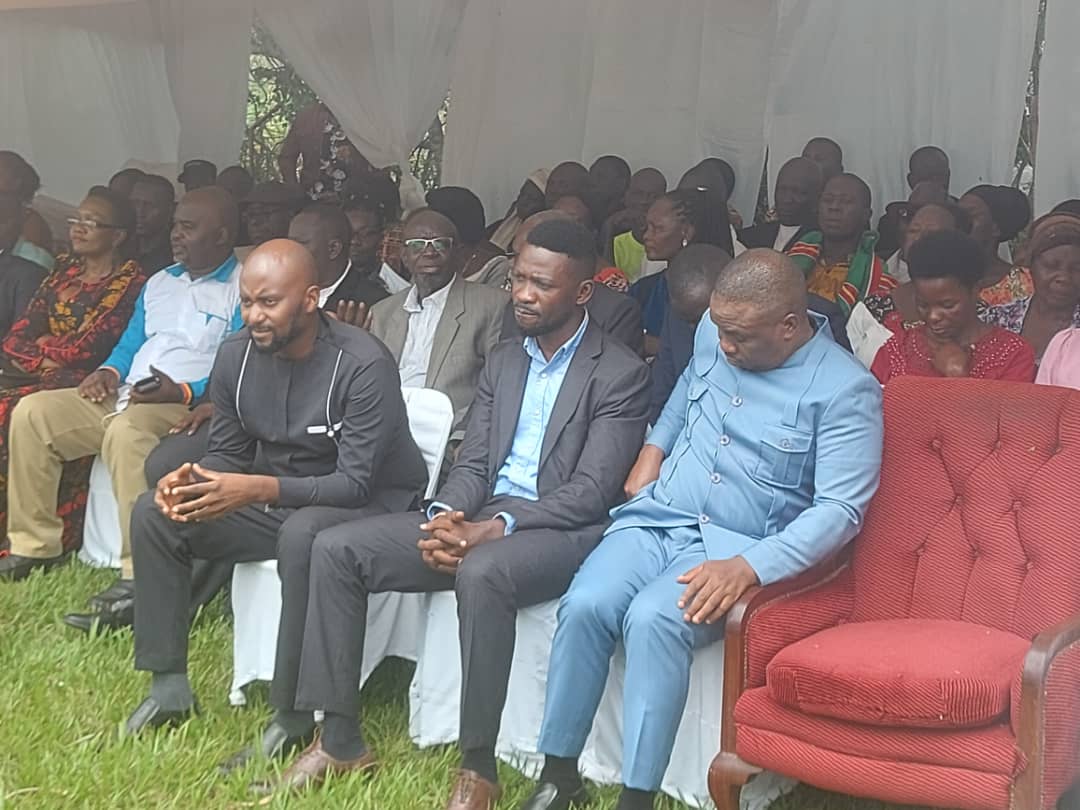
 News3 years ago
News3 years agoPresident Bobi attends burial of wife to ex LOP Oguttu
-
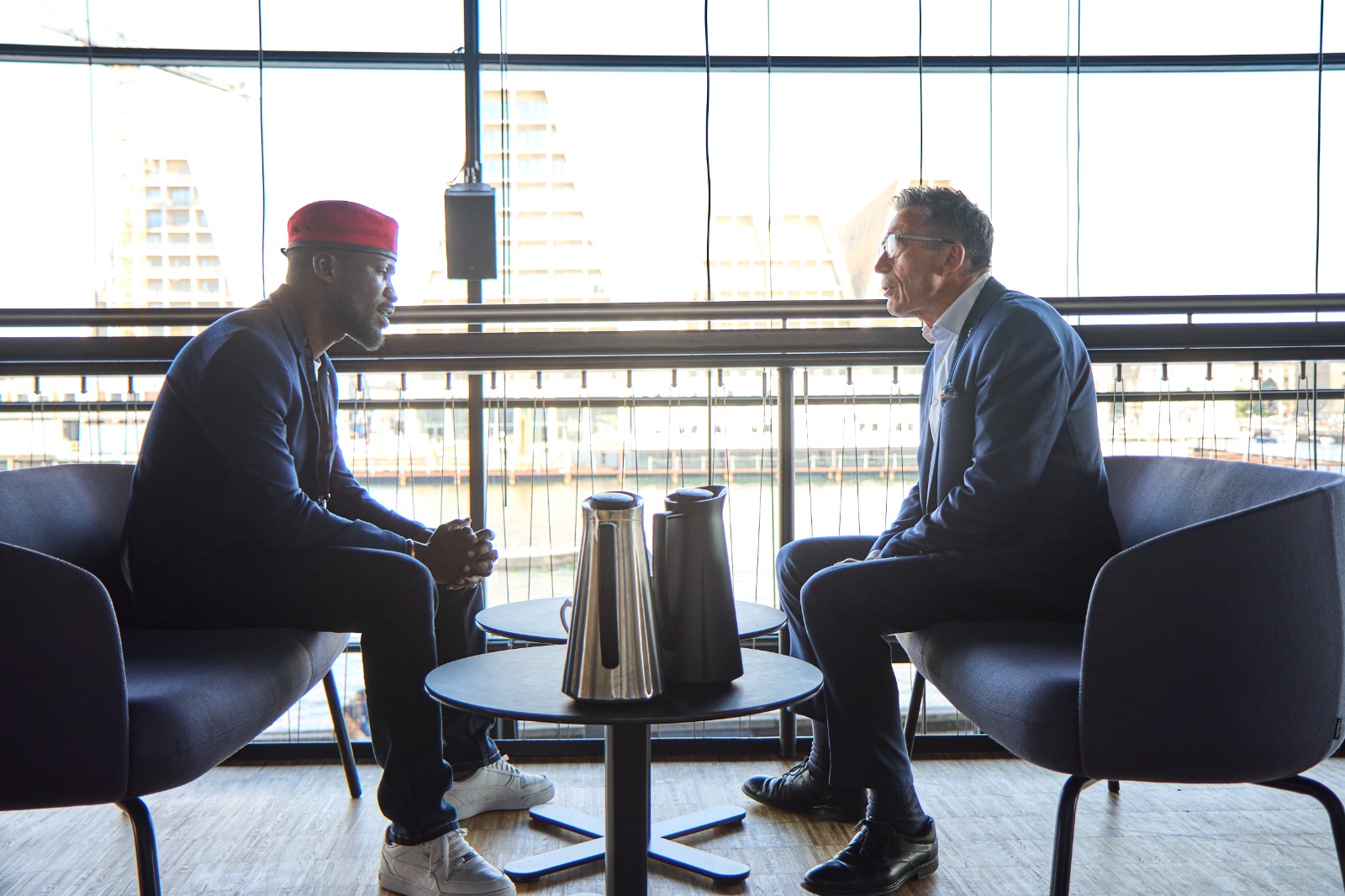
 News3 years ago
News3 years agoBobi meets ex NATO boss, discuss key issues
-
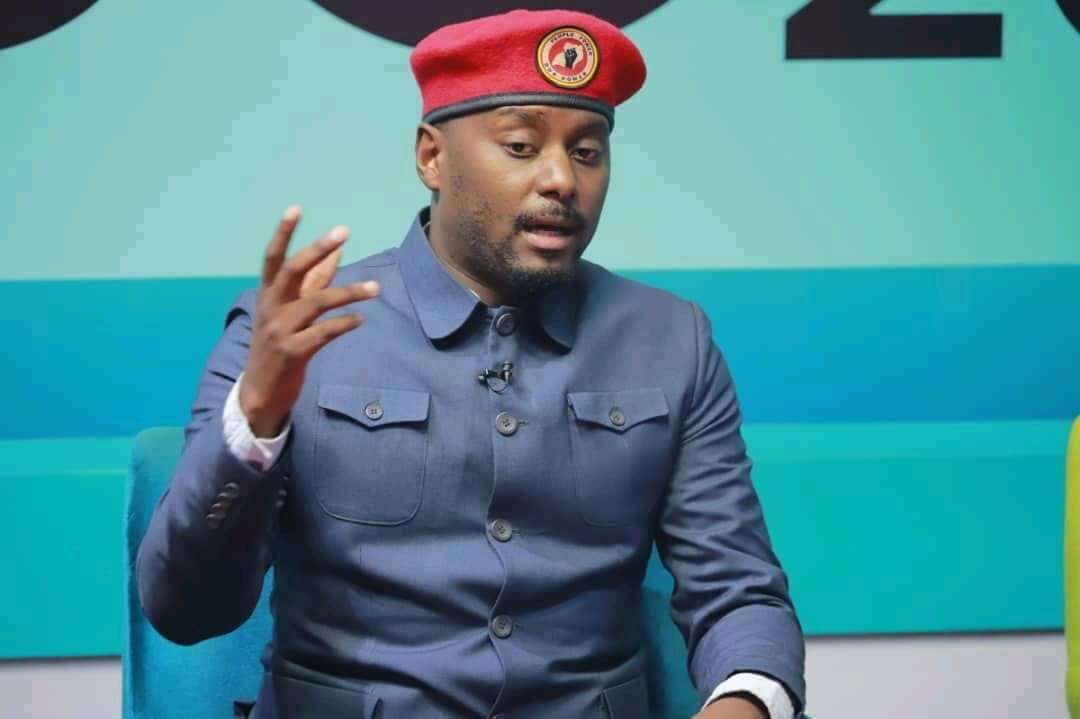
 Uganda4 years ago
Uganda4 years agoThis is why dictator M7 throws “Small victories” to the opposition
-
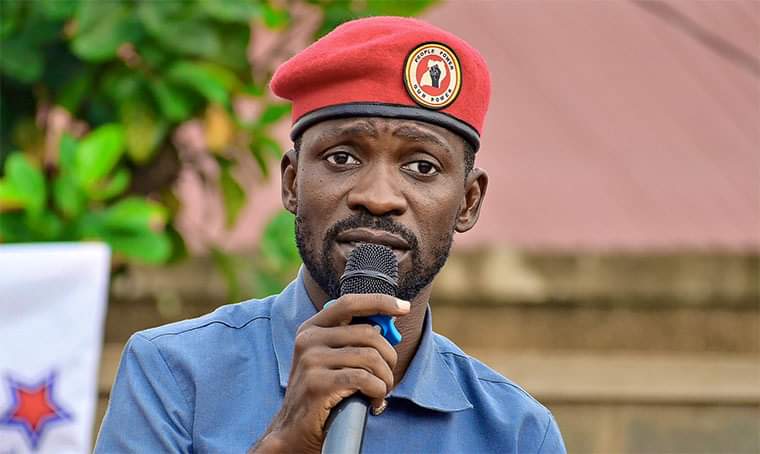
 News3 years ago
News3 years agoEXCLUSIVE: A recap of Bobi Wine interview with BBS
-
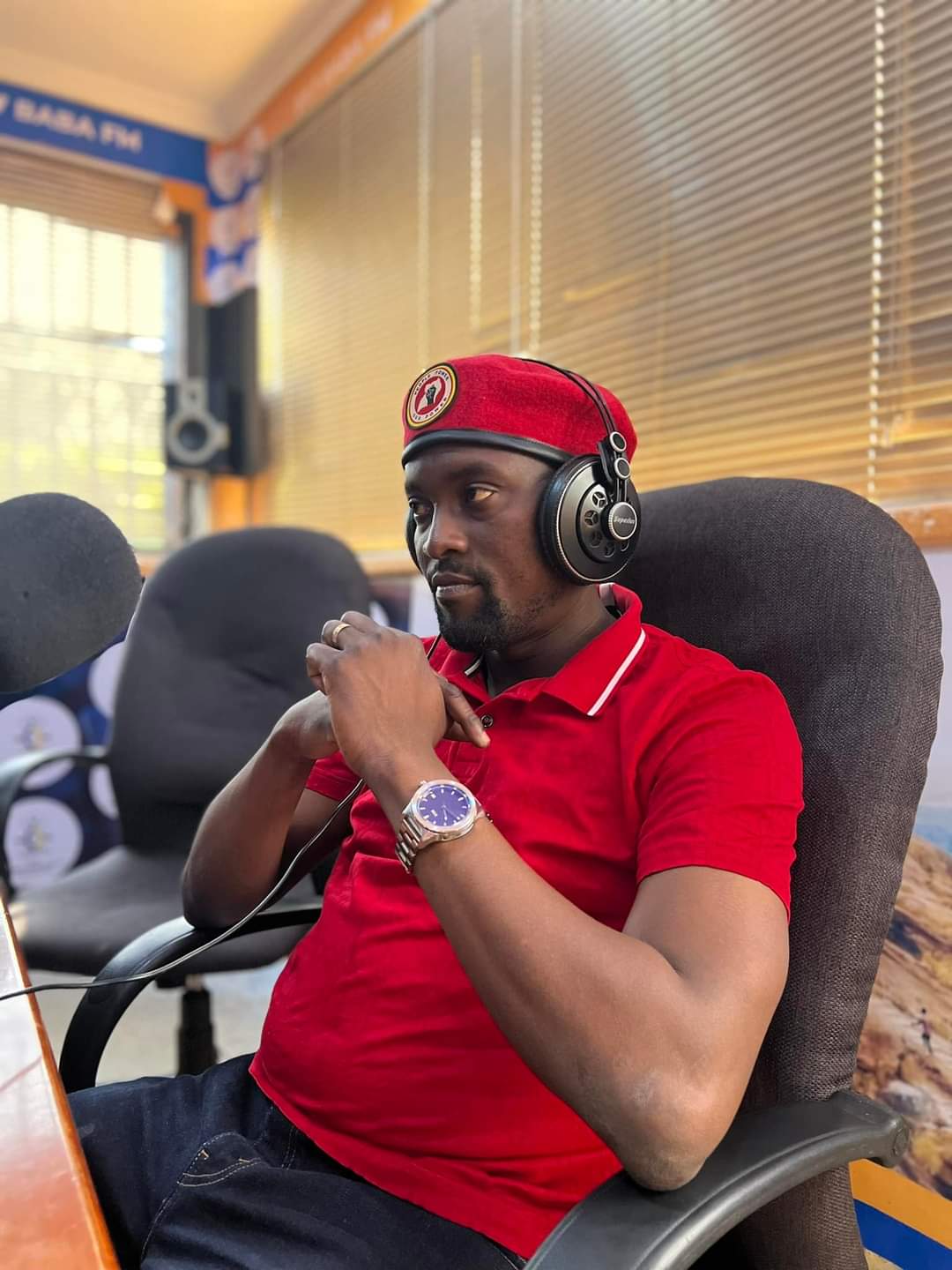
 Exclusive3 years ago
Exclusive3 years agoNUP Deputy Spokesperson Waiswa celebrates birthday in style
-
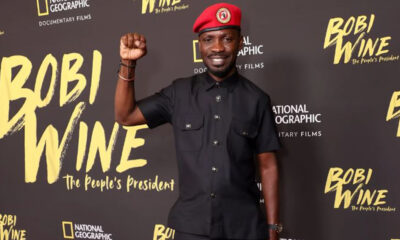
 Exclusive2 years ago
Exclusive2 years agoBobi Wine The People’s President Full Documentary


